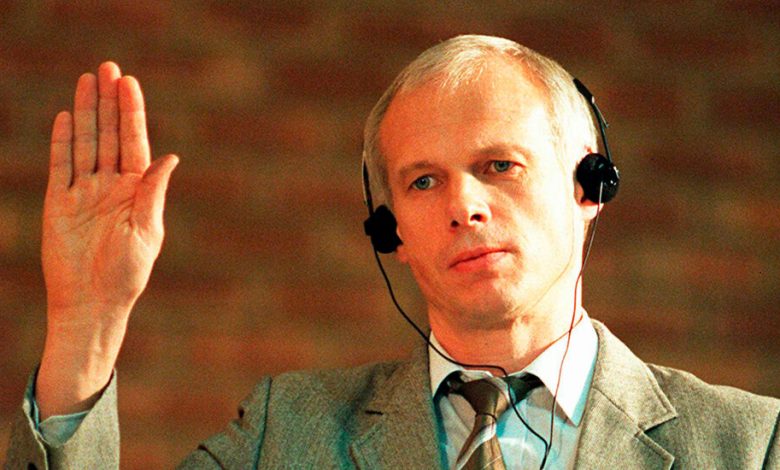Apartheid-Era Assassin in South Africa Is Stabbed Days Before Release Date

JOHANNESBURG — A widely reviled apartheid-era assassin in South Africa was stabbed by a fellow inmate on Tuesday, just days before he was scheduled to be released on parole, prison authorities said.
The assassin, Janusz Walus, is often regarded as having brought South Africa to the brink of civil war during the tumultuous twilight era of apartheid in the 1990s for his killing of the charismatic anti-apartheid leader Chris Hani.
Mr. Walus survived the attack, which took place in a Pretoria prison, and he was in stable condition afterward, South Africa’s correctional services department said.
Last Monday, South Africa’s chief justice, Raymond Zondo, ordered that Mr. Walus be released on parole after serving 28 years in prison. The Constitutional Court decision drew expressions of outrage from Mr. Hani’s family and set off a national debate on the punishment of apartheid-era criminals.
Mr. Walus had approached South Africa’s highest court after the justice ministry rejected his parole request in 2020. Chief Justice Zondo ruled that rejecting the appeal would set a negative precedent for other prisoners serving life sentences. He found that under South Africa’s post-apartheid constitution, all were equal before the law, and ordered that Mr. Walus be released within 10 days.
In the days after the ruling, a memorial site dedicated to Mr. Hani was vandalized.
The judgment drew swift criticism, with the African National Congress and its allies releasing a statement saying the ruling “pleased unrepentant apartheid perpetrators.”
“This is how South Africa has now become redivided,” the statement said. The A.N.C. and its allies also said they were planning a march to the prison on Wednesday to protest the decision.
By the late 1980s, as violence roiled South Africa, Martin Thembisile Hani — popularly known as Chris — had become one of the most powerful figures in the anti-apartheid struggle. The leader of the South African Communist Party and the guerrilla leader of the African National Congress’s armed wing, Mr. Hani’s call for intensified attacks on South Africa’s white population, specifically the security police, resonated with millions of angry young South Africans driven to take up arms to oppose the brutality of the apartheid government.
After Nelson Mandela, he was regarded as the most charismatic leader of the time, and considered his possible successor to lead the party and the country.
His assassination in 1993, during tense negotiation with the apartheid government, brought the country to the brink of civil war. As anger gave way to violence in Black townships, Mr. Mandela addressed the nation, appealing for calm. He also pressed the government of F. W. de Klerk to set a date for the country’s first democratic election in April 1994, averting further unrest.
In the years since his death, Mr. Hani has become something of a martyr, with his disciplined leadership and views on economic redistribution held up by South Africans frustrated by the stubborn inequality and corruption that have sullied the reputation of the governing A.N.C.
Mr. Walus, along with his co-conspirator, Clive Derby-Lewis, was sentenced to death in 1993. He was also denied amnesty by South Africa’s Truth and Reconciliation Commission. His death sentence was commuted to life imprisonment in 2000, after South Africa abolished the death penalty.
Mr. Walus, a Polish national, must remain in South Africa while out on parole, South Africa’s Home Affairs Ministry said.
Mr. Derby-Lewis was granted medical parole in 2015 and died just over a year later.